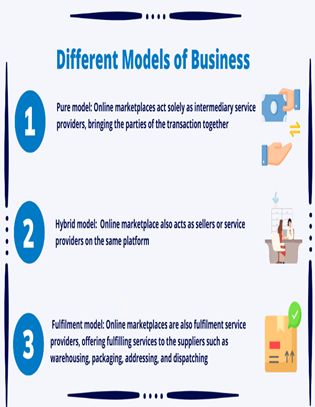Background
In 2021, the Law on Product Safety and Technical Regulations (Law no: 7223, "the Law") entered into force in Turkey. This Law has the goal of transposing both the 1985 Product Liability Directive (85/374/EEC) and the 2001 Product Safety Directive (2001/95/EC) (now replaced by the General Product Safety Regulation - EU/2023/988) of the European Union. Product safety and liability, both governed by the Law, are undoubtedly related concepts, albeit with different objectives. The rules on product safety aims to ensure that products meet a certain standard before they are placed on the market, thus reducing the risk of accidents. The technical regulations set forth the State's expectations for the products to be placed on the market to meet minimum standards and constitute a prerequisite for a continuous administrative control over producers. In case there is a breach of rules on product safety, administrative sanctions usually come into play. Product liability, on the other hand, is an example of strict tort liability, aiming at the compensation for the residual risk that remains despite the existence of product safety rules. The rules governing both issues are found in the same Law in a dispersed manner, although the majority of them belong in the realm of product safety, as the title of the Law suggests.
The continuous increase in the volume and number of e-commerce transactions has turned the online marketplaces into significant market players.1 By acting as a one-stop shopping channel, the online marketplaces facilitate consumers' ability to search, identify, and compare a wide range of sellers and service providers. They also provide suppliers with important benefits that traditional retail cannot easily match. Online marketplaces generate technical, financial, and network economies of scale by giving access to a large consumer base and by providing services like inventory management, payment processing, shipping, advertising, and customer relations.
On the other hand, because of the increase in the share of e-commerce with globalization, the need for regulation has emerged in many legal areas, especially in areas such as product safety, consumer protection law and competition law. However, in this article, we will mainly focus on the obligations of e-commerce platforms in the context of product safety legislation.

Different Models of Business of Online Marketplaces
Given their critical role in the e-commerce transactions, the Law and the secondary legislation have introduced certain provisions applicable to the liability of online marketplaces for product safety and liability. To better assess the relevant legal framework, it is appropriate to make a distinction between different models of business. The first model, also referred to as the pure model, is when online marketplaces act as intermediary service providers, simply bringing the parties of the transaction together. The second (hybrid) model is when the online marketplace also acts as sellers or service providers on the same platform. The third model, is when the online marketplace are also fulfilment service providers, offering fulfilling services to the suppliers such as warehousing, packaging, addressing, and dispatching.
Liability of Intermediary Service Providers
There are several rules in Turkish law that concern the intermediary service providers ("ISPs"). The most extensive regulation is found in the Law on E-Commerce (Law No: 6563, "E-Commerce Law"). E-Commerce Law sets forth the fundamental principle that the ISPs are not responsible for any unlawful content and unlawfulness of the goods or services related to the content, unless otherwise provided in other laws. This is also confirmed by the Regulation on Electronic Intermediary Service Provider and Electronic Service Providers.2 In other words, the legislature must clearly impose responsibility on ISPs to make them responsible for unlawful content. As a result, as per the e-commerce law, ISPs are, as a matter of rule, not obliged to act as gatekeepers for unlawful content. On the other hand, they are obliged to remove illegal content when they become aware of it. ISPs will be considered to be aware of illegal content in the following cases:
- By relevant court decision
- Upon notification of the authorized administration
- If the consumer is right as a result of the investigation on the consumer complaint
Additionally, Law on the Protection of Consumers (Law no: 6502, "Consumer Protection Law") provides for a thorough regulation of the liability of the ISPs in distance sales. The main liabilities are as following:
- To set up a communication system between itself, seller and the consumer
- Jointly responsible for providing preliminary information together with the seller
- Record keeping for three years
ISPs face the following additional obligations for product safety and market surveillance under the Law on Product Safety and Technical Regulations as well as the secondary legislation:
- Keeping record of the merchants and the products (Recording the name, trade name or trademark and contact details of the preceding and, if any, subsequent economic operators in the supply chain in addition to any other information that aids the traceability of the product.)
- Removal of content (Removing the content of a listing within 24 hours upon the request of the competent authority in case the relevant product is found to be unsafe. Otherwise, the competent authority may decide to block access to this content and notify such decision to the Information and Communication Technologies Authority)
- Duty of cooperation with the competent authorities to mitigate, or at the very least reduce, the risks associated with any product placed or maintained on the electronic market through their services.
Liability of Online Marketplaces as Fulfilment Service Providers
Fulfilment is the last phase of the process before the purchased item is delivered to the customer in an electronic commerce transaction is known as fulfillment. This can include having the products stored, packaged, addressed, or shipped by a service provider other than the seller. Whether an online marketplace who goes beyond the provision of merely intermediary services and actively takes part in the distribution chain by offering fulfilment services shall be subject to product safety, liability and market surveillance rules is a pressing question.
At its current state, neither the Law nor the secondary regulations provide for direct answers to this question. Therefore, the duties foreseen for ISPs apply to the online marketplaces who also provide for fulfilment services. Given the broad definition in the Law for the supplier,3 such an active involvement of an online marketplace in the transaction chain may also be found sufficient to qualify them as suppliers. To our knowledge, such a case has not yet been brought in front of the higher courts in Turkey.
The Market Surveillance Regulation of the European Union (EU/2019/1020) which entered into force in 2019 embodies important duties applicable to the fulfilment service providers. For instance, for certain products, if there is not a producer, an authorized representative or an importer based in the Union; there must be a fulfilment service provider established in the Union for such product to be put in the market. On the other hand, the Framework Regulation on Market Surveillance and Inspection of Products (the Framework Regulation") states that the principles and rules related to the market surveillance for products sold via online communication tools will be set forth with secondary legislation. Based on this Regulation, a legislative initiative similar to the one in the European Union is currently under consideration in Turkey.
Liability of Online Marketplaces as Producers or Sellers
An online marketplace may also be subject to additional product safety and liability rules that apply to the economic operators, depending on the specifics of its business model. In cases where an online marketplace sells its own-branded products, it may assume the responsibilities of a producer. If the online marketplace acts as the seller of products made by other producers, it may qualify as an importer or supplier of the product. As expressly stated under the Framework Regulation, the obligations of the economic operators, namely of the producer, the authorized agent of the producer, the importer and the supplier equally apply to the products placed or kept on the market through remote communication tools.
Conclusion
In essence, while online marketplaces serve as pivotal platforms for e-commerce, their roles tend to extend beyond mere intermediaries, necessitating robust regulatory frameworks to safeguard consumer interests and uphold product safety standards. As e-commerce continues to evolve, ongoing dialogue and adaptation between legislators, industry stakeholders, and consumer advocates remain paramount to foster a safe and conducive online marketplace environment. We continue to follow the regulatory developments closely, anticipating that there will be important legal developments as to the liabilities of ISPs in the near future.
Footnotes
1. According to the statistics, in the first half of 2023, e-commerce volume in Turkey increased by 109.7% compared to the same period of the previous year and reached 652.7 billion TL. In the same period, the ratio of e-commerce to the general trade volume has been 19.1%, with an increase by 3.2% compared to the same period of the previous year. See https://www.eticaret.gov.tr/haberler/10094/detay
2. It published in the Official Gazette dated 29.12.2022, numbered 32058.
3. Article 3(1)(ç) of the Law defines the supplier as "any natural or legal person other than the producer or importer who makes a product available on the market by taking part in the supply chain."
The content of this article is intended to provide a general guide to the subject matter. Specialist advice should be sought about your specific circumstances.




